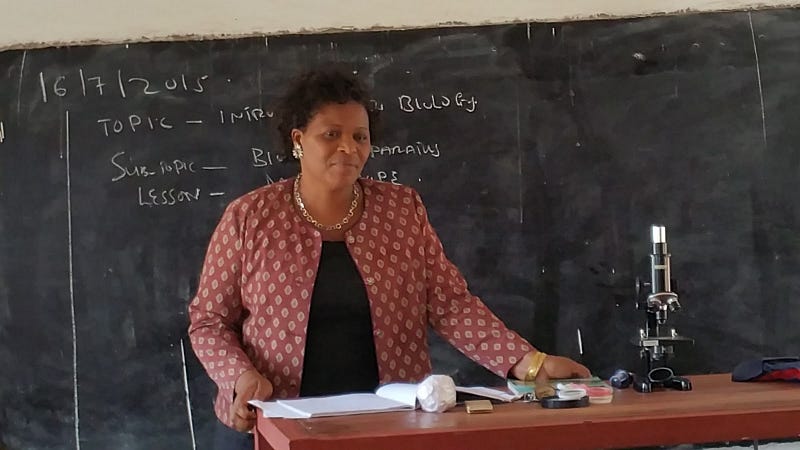
Bahati Aminei Laizer is like any other 15-year-old girl. She loves her family and friends, and works hard in school. She dreams of becoming a microbiologist so she can provide for her family and solve the health needs of her community. Like most girls with this dream, she is in a group that is often excluded from such pursuits, either directly or indirectly by being boxed in through social and cultural customs. According to a study the United Nations conducted in 14 countries, the probability of female students obtaining a degree in a science related field is less than half that of men. Moreover, Bahati, who lives in rural Tanzania, had no access to the resources and material necessary to excel in a STEM subject like microbiology.
There is a still a giant gender disparity and a continued lack of encouragement for young girls and women to pursue STEM professions (including technology, engineering, mathematics and cutting-edge, innovative technologies). (Watch the video to know why the need to close this gap is urgent)
(Why support Women & Girls in science by UN Women)
Despite historic critical female contributors to the scientific community (like Marie Curie) and recent innovative work (like this 21-year old woman’s rocket design for NASA). So pronounced is the gap, and so insufficient is the encouragement and inspiration for girls to be in STEM professions, that, in 2015, the United Nations declared February 11 to be International Day of Women and Girls in Science.
Asante Africa Foundation accepted the challenge and introduced a new component to the Accelerated Learning in the Classroom Program,“Smart Start” digital packages to tackle this challenge head on with the goal of giving youth a head start in STEM and moving their mind to science and technology.
“The Asante Africa Foundations’ ICT Project has change my academic life completely” — Bahati Aminei Laizer

The tools amplify learning opportunities so that the students would not only learn about science and technology, but also actually engage in that technology while learning. The packages include a laptop, LCD projector, a hotspot, and workbooks essential to developing 21st century skills. Additionally, Asante Africa provides the science and laboratory equipment necessary for authentic hands-on learning. Continuing to provide these resources to young girls in rural Africa is critical to their development as change agents and realizing the opportunities the world has for them.
This new technology is helping Bahati pursue her dream of becoming a microbiologist. She credits the hands-on experience, and ability to get away from using outdated books to learn, as life altering. In her own words — “The Asante Africa Foundation ICT Project has changed my academic life completely.” Using the technology and tools provided by Asante Africa, she is able to use technology to learn about microorganisms and download reference materials, which further sparks her drive and desire to learn.
So, take a moment and reflect on what the young girls and women in this world could accomplish in science and technology. They will bring diverse solutions to our biggest challenges and if given the opportunity girls like Bahati will crack the code and cure the flu epidemic or they will engineer a low-cost, renewable energy that saves the planet.
Stay Engaged & See the Impact of Girls in Science
